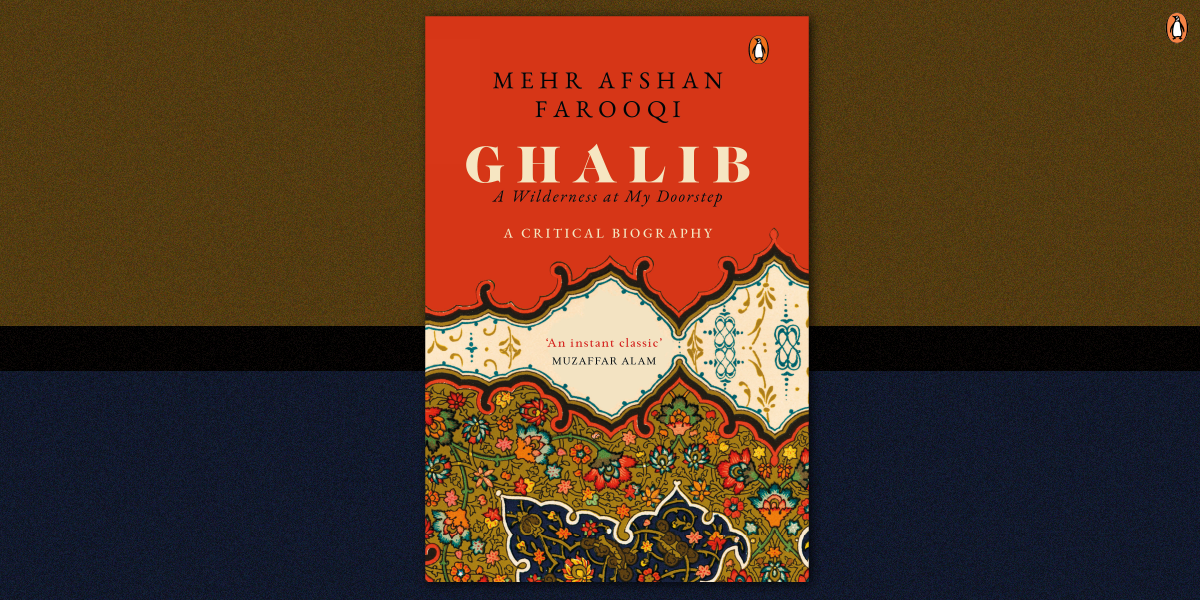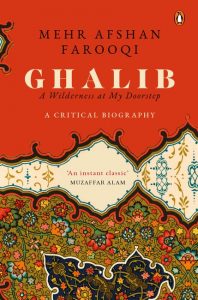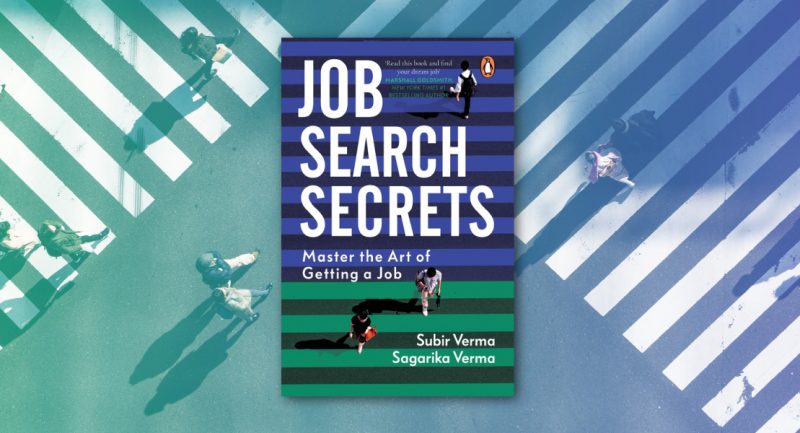
Mirza Asadullah Khan Ghalib was born in Agra in the closing years of the eighteenth century. A precocious child, he began composing verses at an early age and gained recognition while he was still very young. He wrote in both Urdu and Persian and was also a great prose stylist. He was a careful, even strict, editor of his work who took to publishing long before his peers.
Ghalib’s voice presents us with a double bind, a linguistic paradox. Exploring his life, works and philosophy, Ghalib is an authoritative critical biography of Ghalib and opens a window to many shades of India and the subcontinent’s cultural and literary tradition.
Here is an excerpt from the text by Mehr Afshan Farooqi:
One day, my heart like a paper kite,
Took off on freedom’s string,
And began to shy away from me,
Became so wayward, it pestered me.
Ghalib, from an early composition
To tell the truth – for to hide the truth is not the way of a man free in spirit – I am no more than half a Muslim, for I am free from the bonds of convention and religion and have liberated my soul from the fear of men’s tongues.
Ghalib, in Dastanbuy

Ghalib
Mehr Afshan Farooqi
‘Mirza Asadullah Khan Ghalib, known as Mirza Naushah, titled Najmuddaulah Dabir ul-Mulk Asadullah Khan Bahadur Nizam Jang, with the nom de plume Ghalib for Persian, and Asad for Rekhtah (Urdu), was born on the eve of 8th of Rajab 1212 hijri (27 December 1797) in the city of Agra.’ Thus begins Maulana Altaf Husain Hali’s important biographical account, Yadgar-e-Ghalib.
Indeed, Hali’s critical, path-breaking memoir of his great ustad reconstructs the poet’s life story in a thrilling narrative woven with anecdotes, letters, personal trivia, first-hand observations and, most importantly, a penetrating analysis of Ghalib’s poetry and prose. Ghalib’s colourful personality shines in Hali’s lucid prose. It is hard to imagine how much or how little we would have known of Ghalib without Hali’s seminal work. There were Ghalib’s letters – volumes of them, a vital source of information – but the inspiration and direction that Hali’s work provided to generations of scholars remains undeniable.
In his youth, Ghalib was counted among the most handsome men in the city, be it Agra or Delhi. He was tall, with broad shoulders; his hands and feet were noticeably strong. Even in old age, when Hali first saw him, the signs of beauty were apparent on his face and demeanour. He was married on the 7th of Rajab, 1225 hijri (1810 ce) to Umrao Begam, the daughter of Navab Mirza Ilahi Bakhsh Khan Ma’ruf. Ghalib was thirteen years old at the time, and his bride eleven. Some years after his marriage, Ghalib moved to Delhi. It appears that he lived in Delhi for the next fifty years, till the end of his life. According to Altaf Husain Hali, in this long period, he never bought a house. He chose to live in rented houses; when he got tired of one house, he moved to another, but always remained in the same neighbourhood: Gali Qasim Jan, or Habsh Khan ka Phatak, or a place nearby.
Ghalib became an orphan at the impressionable age of five, when his father, Mirza Abdullah Beg Khan, was killed by a stray bullet in Rajgarh, Rajasthan, where he had gone with a force from Alwar to quell a rebellion. He was buried in Rajgarh. Raja Bakhtawar Singh of Alwar fixed a generous allowance for Ghalib and his siblings – his older sister, known as Chhoti Begam, and his younger brother, Mirza Yusuf. The children and their mother had always lived at the maternal home in Agra. In fact, Ghalib was born in the grand mansion of his maternal grandfather, Khwaja Ghulam Husain Khan Kamidan. Khwaja Ghulam Husain, a military commander (kamidan in colloquial speech) in the province of Meerut, was among the leading elite of Agra. His estate included numerous villages, and he owned many properties in the town itself. Ghalib’s mother, Izzatun Nisa Begam, was literate. Because Ghalib’s father lived with his in-laws, he was fondly known as Mirza Dulha, or Mister Bridegroom. Ghalib himself was known as Mirza Naushah, which, too, means Mister Bridegroom. Such nicknames were terms of affection used for males living with their in-laws. Presumably, Ghalib’s father died in 1801 (although Ghulam Rasul Mehr gives 1803 as the date), because we know that his paternal uncle, Mirza Nasrullah Beg Khan, died some five years later, in 1806, because of the injuries he suffered after accidentally falling off his elephant. Although Ghalib recorded his uncle’s death as an important event in his life, there is no evidence that he was close to his uncle; however, he and his siblings did become entitled to a pension because they were among Mirza Nasrullah Beg’s dependents.
**









